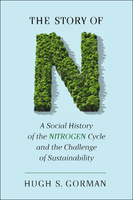Shaky Foundations
The Politics-Patronage-Social Science Nexus in Cold War America
Shaky Foundations provides the first extensive examination of a new patronage system for the social sciences that emerged in the early Cold War years and took more definite shape during the 1950s and early 1960s. Focusing on the defense department, the Ford Foundation, and the National Science Foundation, Mark Solovey explores the struggles of these various funders to define what counted as legitimate social science and how their policies and programs helped to shape the goals, subject matter, methodologies, and social implications of academic social research in the nuclear age.
Hormones, Heredity, and Race
Spectacular Failure in Interwar Vienna
In the early twentieth century, arguments between “nature” and “nurture” pitted a rigid genetic determinism against the idea that genes were flexible and open to environmental change. This book tells the story of three Viennese biologists who sought to show how the environment could shape heredity through the impact of hormones and explores the dynamic of failure in science through both scientific and social lenses.
Growing American Rubber
Strategic Plants and the Politics of National Security
Shaky Foundations
The Politics-Patronage-Social Science Nexus in Cold War America
Shaky Foundations provides the first extensive examination of a new patronage system for the social sciences that emerged in the early Cold War years and took more definite shape during the 1950s and early 1960s. Focusing on the defense department, the Ford Foundation, and the National Science Foundation, Mark Solovey explores the struggles of these various funders to define what counted as legitimate social science and how their policies and programs helped to shape the goals, subject matter, methodologies, and social implications of academic social research in the nuclear age.
The Story of N
A Social History of the Nitrogen Cycle and the Challenge of Sustainability
The Story of N analyzes the notion of sustainability from a fresh perspective, the integration of human activities with the biogeochemical cycling of nitrogen, and provides a supportive alternative to studying sustainability through the lens of climate change and the cycling of carbon. It is the first book to examine the social processes by which industrial societies learned to bypass a fundamental ecological limit and, later, began addressing the resulting concerns by establishing limits of their own.
The Malthusian Moment
Global Population Growth and the Birth of American Environmentalism
The Malthusian Moment locates the origins of modern American environmentalism in a twentieth-century revival of interest in Thomas Malthus’s theory of population growth, shedding new light on some of the big stories of postwar American life: the role of the federal government, urban and suburban problems, the Civil Rights and women’s movements, the role of scientists in a democracy, new attitudes about sex and sexuality, and the emergence of the “New Right.”
The Malthusian Moment
Global Population Growth and the Birth of American Environmentalism
The Malthusian Moment locates the origins of modern American environmentalism in a twentieth-century revival of interest in Thomas Malthus’s theory of population growth, shedding new light on some of the big stories of postwar American life: the role of the federal government, urban and suburban problems, the Civil Rights and women’s movements, the role of scientists in a democracy, new attitudes about sex and sexuality, and the emergence of the “New Right.”
Overpotential
Fuel Cells, Futurism, and the Making of a Power Panacea
Overpotential charts the twists and turns in the ongoing quest to create the perfect fuel cell. By exploring the gap between the theory and practice of fuel cell power, Matthew N. Eisler opens a window into broader issues in the history of science, technology, and society after the Second World War, including the sociology of laboratory life, the relationship between academe, industry, and government in developing advanced technologies, the role of technology in environmental and pollution politics, and the rise of utopian discourse in science and engineering.









